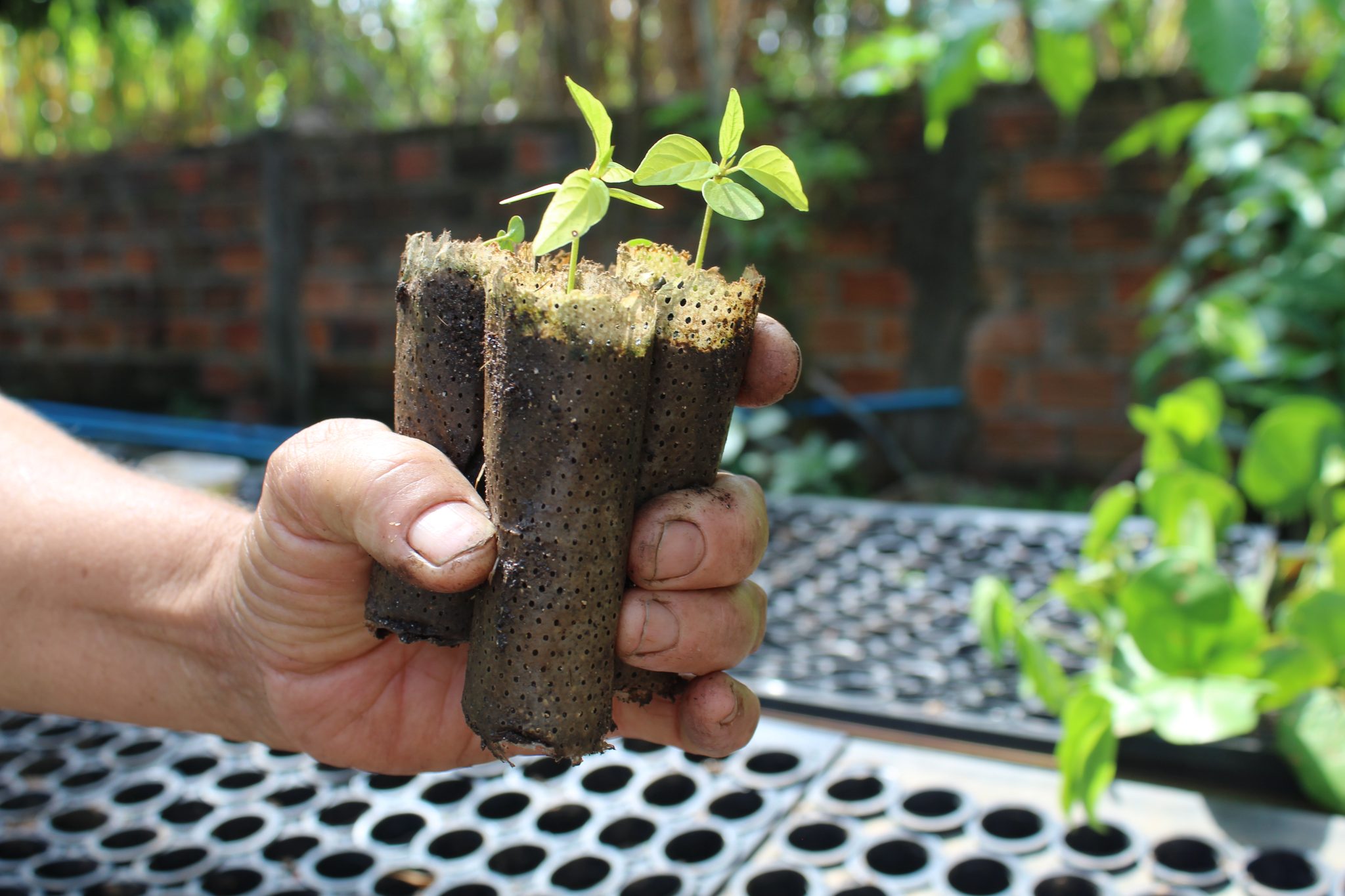Seeking innovations in the environmental area, IPÊ paves the way for a new stage that begins towards the sustainable production of native seedlings from the Atlantic Forest biome of Pontal do Paranapanema, in the extreme west of São Paulo. In community nurseries supported by IPÊ, traditional plastic tubes are gradually being replaced by substrate tubes wrapped in biodegradable paper, or ecopots.
The coordinator of the community nurseries project, Nivaldo Ribeiro Campos, cites some benefits of ecopots, such as the versatility of biodegradable paper as a natural alternative that does not harm the environment.“ As for the development of the seedling, in this system the roots can pass through the biodegradable tube due to the porosity of the paper. This process keeps the roots closer to their natural state and facilitates the development of seedlings in the field, as well as reducing replanting costs,” he comments.
To get started, IPÊ acquired around 40,000 biodegradable tubes, in addition to 320 trays suitable for production, as provision for the eight nurseries that supply native seedlings to the Institute. Each nurseryman received an average of 40 trays and 5,000 ecopots to begin the transition process.
The initiative presents positive results. Nurseryman Iraci Lopes Corado, owner of the Viva Verde nursery, is an example. In recent months, she invested her own resources in purchasing 460 trays. According to Iraci, she is carrying out some tests to analyze how the seeds germinate in biodegradable tubes. However, she has already assessed that the Jatobá seed (Hymenaea courbaril) is one of the species that showed excellent development in the ecopots.
Another positive factor of planting in the ecopot, highlighted by the nursery worker refers to the production of different species of ipês. According to Iraci, the rooting of this species adds a lot to the substrate and this makes it difficult to remove the seedling from the plastic tube, to the point where it is necessary to hit the container with a piece of wood to loosen the roots, which can even lead to the loss of seedlings. This activity can also break plastic containers, leading to disposal and causing damage. “With an ecopot, this problem no longer exists because the seedling goes directly in the substrate cylinder to the field,” she says.
Another nursery owner who highlights the benefits of biodegradable tubes is Marcela dos Santos, owner of the Mata Nativa nursery. During this transition period, she already realized a great advantage of eco-pots: the seedlings are transported to the field without the need to remove the container, as is the case with traditional tubes. This operation reduces labor time and, consequently, costs.
In Nivaldo’s assessment, community nurseries have adapted very well to this environmental innovation, which is in transition in community nurseries, with 10% of production already being carried out in biodegradable tubes. However, this implementation towards sustainable production is a long-term process.


